Articles of 2007
Ring 8: Boxers Helping Boxers
After a two month summer hiatus, New York’s Ring 8 of the Veteran Boxers Association reconvened on September 18 at the Waterfront Crab House in Long Island City, Queens.
In attendance were former world champions Emile Griffith and Vito Antuofermo, as well as numerous popular fighters from the past and present.
Joining the organization that night was former heavyweight prospect Bob Bozic, a native of Canada who now lives in New York where he manages a popular bar. He compiled a 14-3 (7 KOS) record while campaigning from 1970-77.
In September 1973, he went the six-round distance with future heavyweight champion Larry Holmes at Madison Square Garden.
Also joining the organization was former heavyweight Jade Scott, who between 1989 and 1998 amassed a 24-4 (19 KOS) record. He is now trying to break into the acting business.
As it has been doing for over 50 years, Ring 8 continued to do what it does best. At the board meeting, it was unanimously approved to contribute money toward the burial expenses of Joe Louis Parham, a winless light heavyweight who fought only four times in 1958. Among the fighters who beat him was Emile Griffith in Griffith’s pro debut.
Even though Parham was not a member of Ring 8 and was a resident of New Jersey, there was no resistance from the board about forwarding money for his burial expenses.
“That’s what we do,” said Ring 8 President Henry Wallitsch, a former heavyweight who fought, among others, Ernie Terrell. “I’m glad that we can help out his family in their time of need.”
In the past, Ring 8 would go to great expense to fly in former champions for its annual holiday party in December. It was decided this year that there are so many local champions in New York, as well as uncrowned champions associated with Ring 8, that are equally worthy of annual honors so there is no reason to look outwardly for honorees.
Former middleweight Joe Miceli, for example, fought 12 world champions. And onetime middleweight Johnny Breitenbruck, 30-9-1 (11 KOS), who was celebrating his 80th birthday party, once tried to revive a youngster who had fallen through the ice and drowned just hours before Breitenbruck squared off in the ring.
He still gets shaken when talking about how the kid didn’t make it. Once you get to know Breitenbruck, it is easy to understand why he was so committed to saving that child. A former member of the United States Marine Corps, he was the youngest leatherneck to ever train fighters at Parris Island.
Moreover, all three of his sons served in the USMC and all saw action in Vietnam before embarking on respectable careers. After retiring from boxing in 1952, Breitenbruck was the longtime supervisor of services at the Copacabana nightclub.
Among his pals were ballplayers Billy Martin and Mickey Mantle, the latter of whom he revered as a genuinely wonderful guy. Breitenbruck, who is always quick with a joke and a smile, is a joy to be around.
The social worker of one Ring 8 member who is suffering from dementia also attended the meeting. She said the member, for whom Ring 8 has been paying his bills for many years, is at risk of being put in a state nursing home.
She added that if his apartment is not re-painted and the years of collective debris not removed, she would be not be able to convince her superiors to let him stay.
Older Ring 8 board members offered to pay for a clean-up and painting crew, while some of the younger ones volunteered to do it themselves. However, the party in question is in a precarious mental state, so it is debatable how he will react to having his squalid apartment cleaned out of years of “valuable collectibles.”
The social worker was also looking for information on her father, a former fighter named Jerry Moccio. His street name was “Cock-Eyed Jerry” and his boxing name was “Kid Jerry.” He was managed by Cooney Bull, trained at Gleason’s Gym, and lived and socialized in Williamsburg, Brooklyn.
Born in 1917, he is believed to have had bouts at the Ridgewood Grove Arena, the Tri-State Arena and in Brockton, Massachusetts, during a career that began in 1936. She also had a large photo of a fighter named Frankie “Kid” Cavanna, with whom she believes her father, who died in 1994, was acquainted.
Anyone with information, please contact Geraldine at 917-648-7052.
Ring 8 also granted two college scholarships to outstanding boxers and deserving students. Board member Bob Duffy stressed that the scholarships are not just for college, but also for vocational school or for student boxers to takes classes in courses as diverse as barbering or real estate.
The female recipient of the Bill Gallo Scholarship, which is named after Gallo, a longtime Ring 8 member and cartoonist for the New York Daily News, was Ronica Jeffrey, a three time New York City Golden Gloves champion and onetime national champion, who is studying to be a physician’s assistant at the Wood Coburn School. She trains at Gleason’s Gym.
“I can’t thank you enough,” she said. “Boxing is very dear to me. I want to finish school and better myself. This scholarship will help.”
The male recipient was William Rosinsky, another three time Golden Gloves champion and national titlist who is a few courses shy of a degree in physical education from Queens College. He trains at the Starrett City Boxing Club.
“When I go pro, it’s good to have a backup plan,” he said. “This scholarship will help me do that. Thank you very much.”
Ring 8 continues to live up to its motto: Boxers Helping Boxers. Simply put, they do the right thing without fanfare, chest thumping or back slapping.
Anyone wishing to make a tax-deductible donation can do so by mailing a check to:
Veteran Boxers Association
Ring 8
2-03 Borden Avenue
Long Island City, NY 11101
Phone: 718-729-4862
-

 Featured Articles3 weeks ago
Featured Articles3 weeks agoThomas Hauser’s Literary Notes: Johnny Greaves Tells a Sad Tale
-
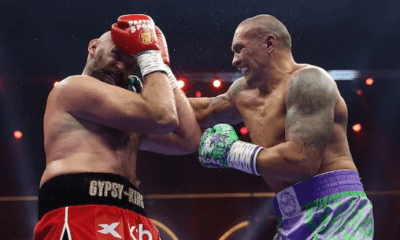
 Featured Articles2 weeks ago
Featured Articles2 weeks agoBoxing Notes and Nuggets from Thomas Hauser
-
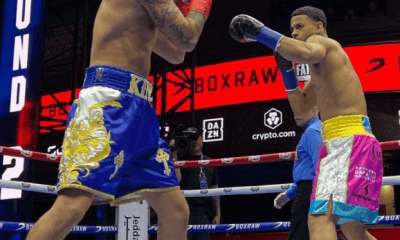
 Featured Articles4 weeks ago
Featured Articles4 weeks agoRolly Romero Upsets Ryan Garcia in the Finale of a Times Square Tripleheader
-
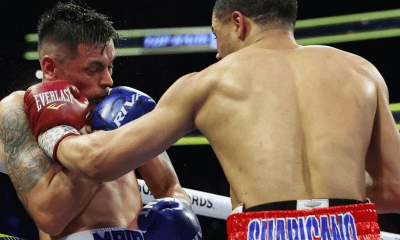
 Featured Articles4 weeks ago
Featured Articles4 weeks agoUndercard Results and Recaps from the Inoue-Cardenas Show in Las Vegas
-
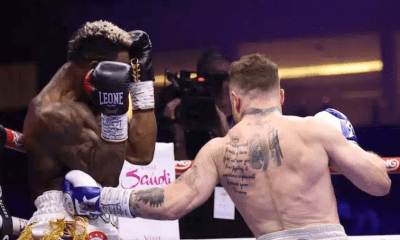
 Featured Articles4 weeks ago
Featured Articles4 weeks agoCanelo Alvarez Upends Dancing Machine William Scull in Saudi Arabia
-
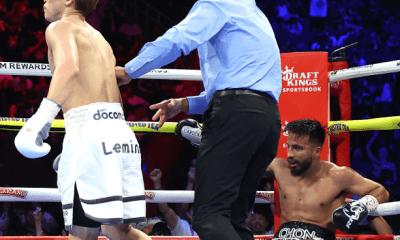
 Featured Articles4 weeks ago
Featured Articles4 weeks agoBombs Away in Las Vegas where Inoue and Espinoza Scored Smashing Triumphs
-
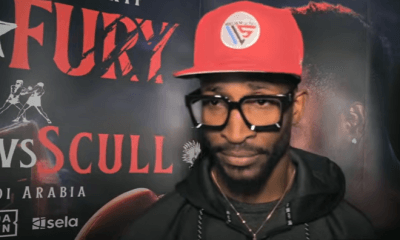
 Featured Articles4 weeks ago
Featured Articles4 weeks agoArne’s Almanac: The Good, the Bad, and the (Mostly) Ugly; a Weekend Boxing Recap and More
-
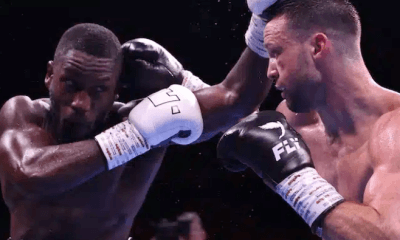
 Featured Articles1 week ago
Featured Articles1 week agoEkow Essuman Upsets Josh Taylor and Moses Itauma Blasts Out Mike Balogun in Glasgow



















